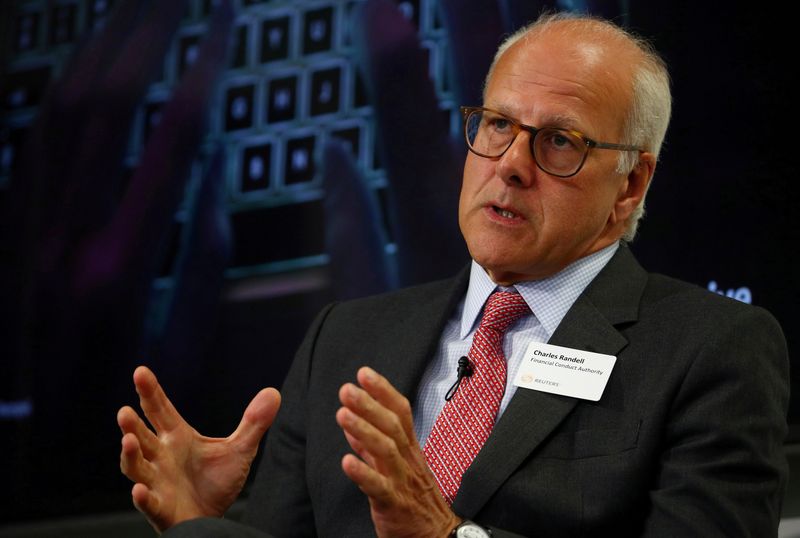LONDON (Reuters) – British banks need to accelerate preparations for dealing with businesses unable to repay money borrowed to bridge the coronavirus pandemic, the national financial sector regulator said on Tuesday.
Over 800,000 businesses have taken out state-backed loans worth around 34 billion pounds ($43 billion)under schemes introduced by the government as lockdowns forced companies to shutter temporarily.
Financial Conduct Authority (FCA) Chair Charles Randell said some of the debt incurred will turn out to be unaffordable and will need to be tackled fast to avoid dragging on recovery.
“Lenders will need to scale their arrears-handling functions quickly, and invest in training and controls,” Randell told an online meeting with the chairs of Britain’s banks.
“There needs to be an appropriate dispute resolution system, and we are working with the Financial Ombudsman Service and the Business Banking Resolution Service to ensure that there is capacity to deal with the volumes we may see.”
Banks were criticised for being slow initially in building up capacity to dole out loans, sparking complaints from small companies struggling to stay afloat.
“We can’t allow this to become a replay of the 2008 crisis where the treatment of some small business borrowers did such serious damage to people and to trust in financial services,” Randell said.
The pandemic’s impact on markets has added to questions about the value of some high cost and risky investment products, including those sold through “long and expensive distribution chains”, he said.
“We will be saying more about the issue of high risk investments in the near future.”
There is also a need to “redesign the system” so that “polluting firms” that break the rules pay for the consequences, rather than being mutualised across the industry, he said.
(Reporting by Huw Jones; Editing by Andrew Cawthorne)



















